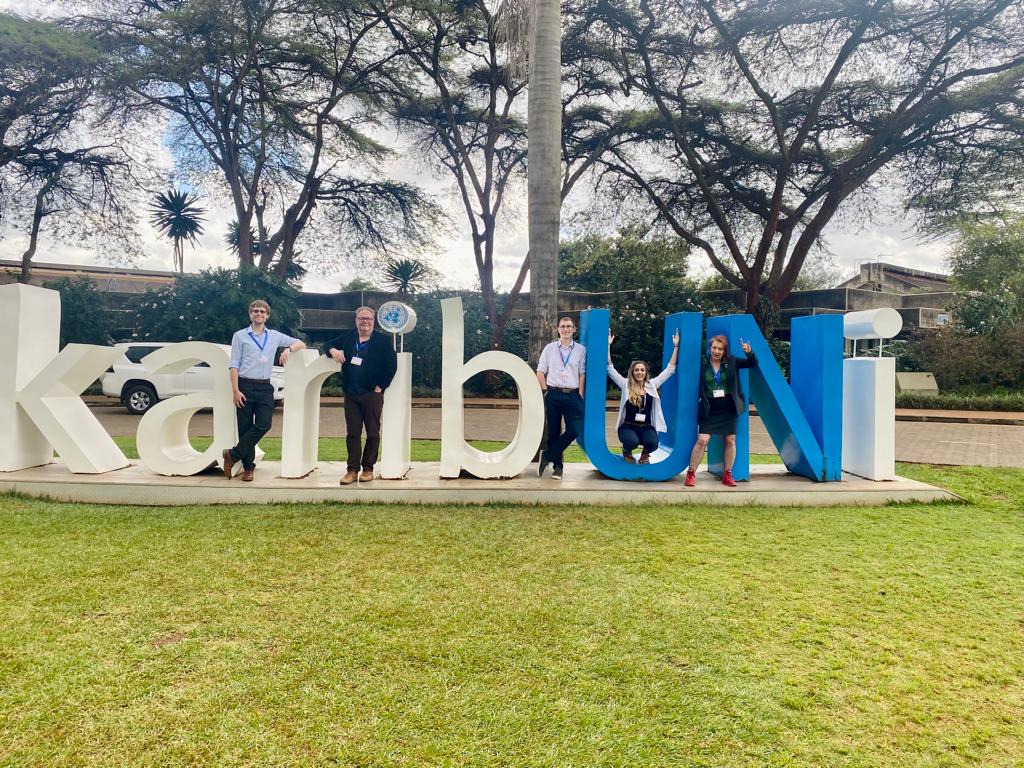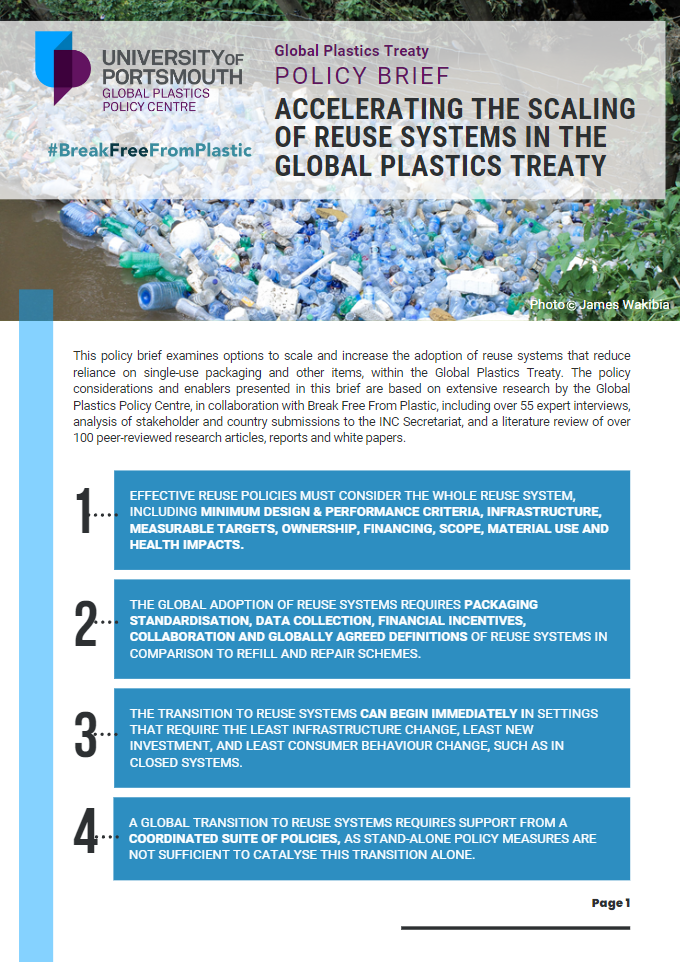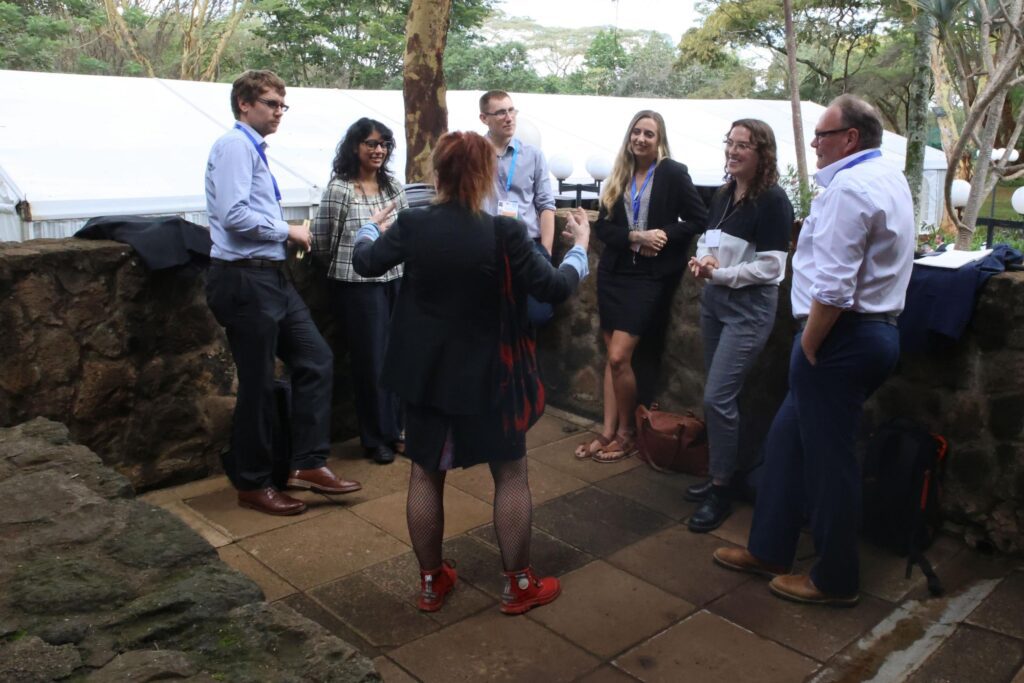The halfway point – reflections on the 3rd session of negotiations for a Global Plastics Treaty

8 December 2023
The seven days of Treaty negotiations at INC-3 were brimming with the “Nairobi Spirit” of collaboration, compromise, and commitment. However, early progress in the week was dampened during the closing weekend when the delegates left the United Nations Environment Programme headquarters without a mandate for intersessional work. As we progress towards INC-4, divisions are wide and meeting the 2024 deadline for the Treaty is looking less hopeful. We look back at the challenges, highlights and procedural issues of the meeting.
Highlights of INC-3
1. Developing the Zero Draft
Members conducted a successful first reading of the Zero Draft, with some areas of consensus found. On the final day, Sunday, a mandate for the secretariat to produce a revised zero draft integrating Members submissions was granted by the Committee.
2. Just transition in the spotlight
An unprecedented focus on a just transition including the rights of waste pickers and other informal workers was seen at this round of negotiations. The biggest challenge in this regard will be to ensure that a just transition is truly integrated throughout the Treaty and the text does not only pay lip service with no substantive measures.
3. Reuse and refill gaining attention
The role of Reuse, Refill, and other disruptive trade models is becoming more prominent in providing an alternative to single use models which are currently widely used.
“If single use models internalised the costs they impose on society they would be no more financially profitable than reuse models.”
Joan Marc Simon (during a BreakFreeFromPlastic side event)
Read the Global Plastics Policy Centre policy brief on scaling up reuse systems here.

4. Regional groups amplified
Constituencies of Members, including the African group, the Alliance of Small Island States (AOSIS), and the Pacific Small Island Developing States (PSIDS) negotiated as blocks to amplify their voices when calling for regionally relevant measures. They also advocated strongly for the rights of smaller delegations to participate fully without ever blocking or delaying progress.
5. Institutional arrangements agreed
There was broad agreement about institutional arrangements. Members were in broad agreement that a Conference of Parties, one or more subsidiary bodies, and a secretariat should be established as is common with other Multilateral Environmental Agreements.
6. “Nairobi Spirit” prevalent
In general members debated in the “Nairobi Spirit” throughout the week, showing a high degree of respect and trust in the co-facilitators and agreeing to be guided by their judgement in organising discussions.
Challenges of INC-3
1. No intersessional work agreed
We reached the conclusion of negotiations on Sunday night with no mandate for Intersessional work to be conducted, a significant blow to the chances of meeting the process’s ambitious timeline.
2. Low ambition countries
Some constituencies showed significantly lower ambition than others, including the Global Coalition for Plastics Sustainability, also known as the ‘Like Minded-Group of Countries’. While the Membership and provenance of these groups is unclear, they strongly argued the following positions:
- Regarding the scope of the Treaty, some nations felt that only plastic pollution should be included and not upstream preventative measures.
- There is a consistent argument that monomers and polymers are not pollutants and should not be targeted by any measures in the Treaty.
- There is an argument that Treaty implementation must not interfere with global trade, citing the World Trade Organisation jurisdiction and Rio Principle 12 which states: Trade policy measures for environmental purposes should not constitute a means of arbitrary or unjustifiable discrimination or a disguised restriction on international trade. Unilateral actions to deal with environmental challenges outside the jurisdiction of the importing country should be avoided.
“We need action across the entire plastics value chain, and specifically upstream solutions. . . . These measures are essential, as we know that recycling and waste management alone are not a viable approach to stop plastic pollution.”
The Business Coalition for a Global Plastics Treaty
3. Small delegations at disadvantage
While some delegations have five to ten negotiators in addition to support staff, others have only one or two people. While the Chair and Secretariat have attempted to strike a balance between making sufficient progress and recognising the limitations of smaller delegations, it is obvious that some Members are at a significant disadvantage. This is exacerbated by concurrent Contact Group session setup, the convening of three contact groups, and the late running of some sessions which means that small delegations simply do not have the human resources to attend all sessions and provide their inputs.
Procedural issues
“Ending plastic pollution does not require the prior consent of all states. But it does require ambitious countries to prioritise their efforts and muster the courage to move ahead, even if those least willing to join stay behind.”
Magnus Løvold, Norwegian Academy of International Law
- The secretariat attempted to conduct a detailed second reading of the Treaty on Friday and Saturday based on rapidly compiled revised text integrating Members’ proposed text revisions. With over 400 submissions, this was unrealistic and many submissions were omitted from the initial compilation text causing delays on Friday morning. Additionally, multiple members felt that they had not had sufficient time to review the revised text to adopt a negotiating position.
- The Zero Draft is now over 100 pages long making the text extremely difficult to work with. A revised Zero Draft is due by the 31st December and will be the basis for discussions at INC-4.
- Despite a time limit of 3 minutes for opening statements, many members spoke for 7-8 minutes, often on topics unrelated to the Zero Draft. This meant that one and a half days had passed before substantive discussions began.
- Interpreters had only been booked until 6pm each day, meaning they often left with plenary negotiations still ongoing. This gave Members seeking to block negotiations an easy argument to try and shut down conversations, contravening the Rules of Procedure.
- There was wide support to delay discussions of the preamble, definitions and principles until after substantive text is drafted. It is hard to see how there will be time for this to occur.
The Global Plastic Policy Centre team at Nairobi

Our team was actively engaged in the INC process. We were approached by a number of delegations, both national and regional, to provide insights based on our policy research. We have provided suggested text to these delegations as to what certain provisions in the treaty could look like, including on reuse, and just transitions.
We had team members sitting in nearly every plenary and contact group session to track the statements made and understand the direction of the negotiations. Based on this, our colleague Sam Winton produced a daily blog. You can read all of these here: https://blogs.surrey.ac.uk/governing-plastics-network/
We were also involved in a number of official and unofficial side events, during which we either presented, or made interventions to present our research. These side events included sitting on a panel for accelerating the scaling of reuse systems, the inclusion of the informal sector and waste pickers in the treaty, health implications and considerations for the treaty, circular economy requirements, and the specific needs and requests associated with small island developing states.
Lastly, the policy team supported a week-long workshop and subsequent performance with a group of 12 waste pickers from the Kenyan National Association of Waste Pickers to perform a piece of legislative theatre piece that identified their daily challenges, facilitated dialogue between waste pickers and policy-makers, and provided a platform for discussion as to what considerations are necessary in the Treaty to ensure that they are not further marginalised. Read more here [link to press release or WP blog]
Read more of our Treaty research here.
What’s in store for INC-4 in April?
There are only 14 days of INC discussion remaining across two sessions and there is still a concerningly wide division between Members. Without a mandate for intersessional work, the timeline to negotiate a Treaty by the end of 2024 is looking increasingly challenging, the Members will need to make rapid and significant progress in Ottawa in April, 2024. A number of issues will need special consideration:
- Rules of Procedure urgently need to be formally adopted so that Members are clear on their options to tackle instances when consensus cannot be reached. Ideally this should include securing the possibility for a vote to ensure that a small number of Nations with significantly different ambitions to others cannot block the process.
- A mandate is urgently needed for the Chair to draft a significantly streamlined Treaty text which reflects the broad consensus on many issues and is close to its final length.
- The High Ambition Coalition (HAC) will need to consider their approach if some nations in the Like Minded-Group of countries refuse to work towards an ambitious legally binding treaty addressing the full life cycle of plastics. Will the treaty be defined by the lowest common denominator or will the HAC investigate their options for leaving some Members behind?
- Given the extremely limited time left in the process, it seems critical that intersessional work be arranged between INC-4 and INC-5 to allow detailed discussion on specific issues such as criteria for chemicals and polymers of concern and potential definitions to be included in the Treaty.
- While most stakeholders recognize the urgency of agreeing on the Treaty text by the end of 2024, this timeline should not come at the expense of allowing sufficient time for meaningful text to be developed. Members may need to consider if there is sufficient time remaining in the process, and conversations about adding further INC-s could occur as soon as UNEA 6 in February.